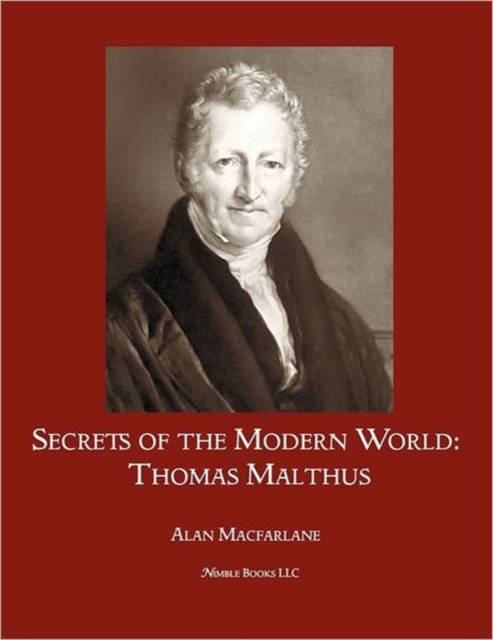
- Retrait gratuit dans votre magasin Club
- 7.000.000 titres dans notre catalogue
- Payer en toute sécurité
- Toujours un magasin près de chez vous
- Retrait gratuit dans votre magasin Club
- 7.000.000 titres dans notre catalogue
- Payer en toute sécurité
- Toujours un magasin près de chez vous
29,45 €
+ 58 points
Format
Description
The Reverend Thomas Robert Malthus was born in 1766 and died in 1834. He was the son of a clergyman and one of eight children. He was educated at Jesus College, Cambridge and later became Professor of History and Political Economy at the East India Company's College at Haileybury in Hertfordshire. His most famous work, the Essay on the Principles of Population, was published in 1798 when he was 32. It has been seen partly as a reaction to the Utopian thought of William Godwin and others, as well as that of Malthus' own father. It is as an extension and formalization of the ideas of the classical economist Adam Smith and others who had laid down some of the basic ideas concerning the tendency of population to outstrip resources. Malthus' theory in brief was that humankind is permanently trapped by the intersection of two 'laws'. The first concerned the rate at which populations can grow. He took the 'passion between the sexes' to be constant and investigations showed that under conditions of 'natural' fertility (with early marriage and no contraception, abortion or infanticide), this would lead to an average of about fifteen livebirths per woman. This figure is confirmed by modern demography. Given normal mortality at the time, and taking a less than maximum fertility, this will lead to what Malthus called geometrical growth, namely 1,2,4,8,16. It only needs 32 doublings like this to lead from an original couple to the present world population of over six billion persons. The second premise was that food and other resource production will grow much more slowly. It might double for a generation or two, but could not keep on doubling within an agrarian economy. Thus there could, in the long run, only be an arithmetic or linear growth of the order of 1,2,3,4. Incorporated in this later theory was the law of diminishing marginal returns on the further input of resources, especially labour. Underpinning the scheme was the assumption that there was a finite amount of energy available for humans through the conversion of the sun's energy by living plants and animals. The conclusion was that humankind was trapped, a particular application in the field of demography of the more general pessimism of Adam Smith. Populations would grow rapidly for a few generations, and then be savagely cut back. A crisis would occur, manifesting itself in one (or a combination) of what he called the three 'positive' checks acting on the death rate, war, famine and disease.
Spécifications
Parties prenantes
- Auteur(s) :
- Editeur:
Contenu
- Nombre de pages :
- 140
- Langue:
- Anglais
Caractéristiques
- EAN:
- 9781608881109
- Date de parution :
- 30-06-11
- Format:
- Livre broché
- Format numérique:
- Trade paperback (VS)
- Dimensions :
- 216 mm x 279 mm
- Poids :
- 340 g







